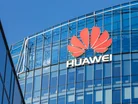Huawei’s AI Container Platform Receives Recognition from Gartner
Huawei has made significant strides in the field of artificial intelligence (AI) with its container platform receiving recognition from Gartner. The Chinese cloud provider has been positioned as a leader in the Magic Quadrant for Container Management 2025, highlighting its unique strengths in AI capabilities.
Gartner’s Recognition
Gartner, a renowned analyst firm, has recognized Huawei’s AI-powered container operations by positioning it in the Leaders quadrant of the Magic Quadrant for Container Management 2025. This recognition is a testament to Huawei’s commitment to innovation and customer-centric approach. Gartner states that Huawei specializes in creating customer-focused innovations and establishing strong partnerships across various sections, including carrier networks, enterprise, consumers, and cloud computing.
Cloud Native 2.0
Huawei Cloud focuses on Cloud Native 2.0, which integrates AI directly into container operations. This innovative approach aims to address the growing complexity of managing AI workloads that require GPU scheduling, distributed training coordination, and intelligent resource allocation. By integrating AI into container operations, Huawei enables organizations to automate and optimize their AI workloads, reducing the burden on IT teams.
AI Containers
Gartner identifies AI containers as Huawei Cloud’s strongest competitive area. Container platforms must handle GPU affinity requirements, high-bandwidth networking for distributed AI training, and automated scaling based on model inference demand patterns. Huawei’s AI container platform addresses these challenges by providing a seamless and efficient way to manage AI workloads.
CCE Doer
Huawei Cloud has developed CCE Doer, an AI-powered diagnostic system that automates container cluster management. The platform uses machine learning algorithms to analyze telemetry data from containerized applications, identifying performance bottlenecks and predicting potential failures. CCE Doer diagnoses over 200 critical exception scenarios with 80% root cause accuracy, providing automated recommendations for resource optimization, security vulnerability remediation, and performance tuning.
Benefits of AI Containers
Huawei’s AI container platform offers numerous benefits to organizations, including:
- Improved Performance: Organizations can experience 20-90% performance improvements across different metrics.
- Increased Efficiency: AI containers automate and optimize AI workloads, reducing the burden on IT teams.
- Enhanced Security: CCE Doer provides automated recommendations for security vulnerability remediation, ensuring the security of containerized applications.
- Better Resource Utilization: AI containers optimize resource allocation, reducing waste and improving overall resource utilization.
Real-World Applications
Huawei’s AI container platform has been successfully deployed in various industries, including:
- Meitu: The Chinese visual creation platform uses CCE with Ascend cloud services to manage AI computing resources for 200 million monthly active users.
- Nigerian E-commerce Platform Konga: Konga migrated to CCE Turbo architecture to implement AI-powered recommendation systems for millions of monthly users.
- Singapore-based Logistics Company Ninja Van: Ninja Van uses Huawei Cloud CCE for AI-powered route optimization and demand forecasting.
Open Source Contributions
Huawei Cloud contributes to various open-source projects through the Cloud Native Computing Foundation (CNCF), including:
- Volcano: A high-performance AI workload scheduling framework.
- KubeEdge: An edge AI container deployment framework.
- Kmesh: A service mesh acceleration framework for AI applications.
Conclusion
Huawei’s recognition from Gartner as a leader in the Magic Quadrant for Container Management 2025 is a testament to its commitment to innovation and customer-centric approach. The company’s AI-powered container platform offers numerous benefits, including improved performance, increased efficiency, enhanced security, and better resource utilization. With real-world applications across various industries and contributions to open-source projects, Huawei Cloud has solidified its position as a leader in the AI container market.
Case Studies
Meitu
Meitu is a Chinese visual creation platform that uses CCE with Ascend cloud services to manage AI computing resources for 200 million monthly active users. The company leverages Huawei’s AI container platform to automate and optimize its AI workloads, reducing the burden on IT teams and improving overall performance.
Nigerian E-commerce Platform Konga
Konga is a Nigerian e-commerce platform that migrated to CCE Turbo architecture to implement AI-powered recommendation systems for millions of monthly users. The company experienced significant improvements in performance and efficiency, with automated recommendations for security vulnerability remediation and resource optimization.
Industry Trends
The adoption of AI containers reflects broader trends in machine learning deployment strategies. Companies require platforms that can handle the computational intensity of AI workloads while providing flexibility to update models and scale inference capacity dynamically. Huawei Cloud’s AI container platform addresses these challenges by providing a seamless and efficient way to manage AI workloads.
Gartner’s Perspective
According to Gartner, "Huawei specialises in creating customer-focused innovations and establishing strong partnerships, developing capabilities across carrier networks, enterprise, consumers and cloud computing sections." The analyst firm highlights Huawei Cloud’s focus on Cloud Native 2.0, which integrates AI directly into container operations.
Future Developments
Huawei Cloud operates serverless container products CCE Autopilot and CCI specifically optimized for AI workloads. These platforms handle GPU resource management and model serving automatically, allowing data scientists to focus on algorithm development rather than infrastructure configuration. The company’s Kunpeng serverless containers provide 40% better cost-effectiveness for AI inference workloads with variable demand patterns.
Open Source Contributions
Huawei Cloud contributes to various open-source projects through the Cloud Native Computing Foundation (CNCF), including:
- Volcano: A high-performance AI workload scheduling framework.
- KubeEdge: An edge AI container deployment framework.
- Kmesh: A service mesh acceleration framework for AI applications.
Serverless AI Computing
Huawei Cloud’s serverless AI computing platform addresses scenarios where organizations deploy multiple machine learning models with different computational requirements. The platform automatically provisions GPU resources for training jobs and scales inference endpoints based on request volume.
Conclusion
In conclusion, Huawei’s recognition from Gartner as a leader in the Magic Quadrant for Container Management 2025 is a testament to its commitment to innovation and customer-centric approach. The company’s AI-powered container platform offers numerous benefits, including improved performance, increased efficiency, enhanced security, and better resource utilization. With real-world applications across various industries and contributions to open-source projects, Huawei Cloud has solidified its position as a leader in the AI container market.
References
- Gartner Magic Quadrant for Container Management 2025
- Huawei Cloud: AI Container Platform
- Meitu: Chinese Visual Creation Platform

